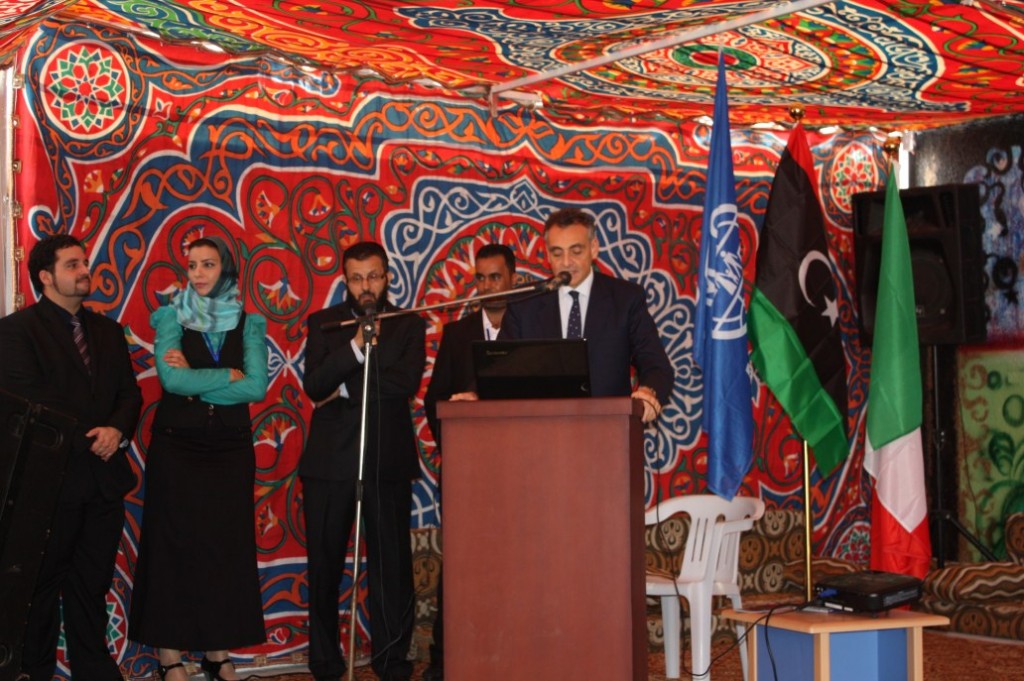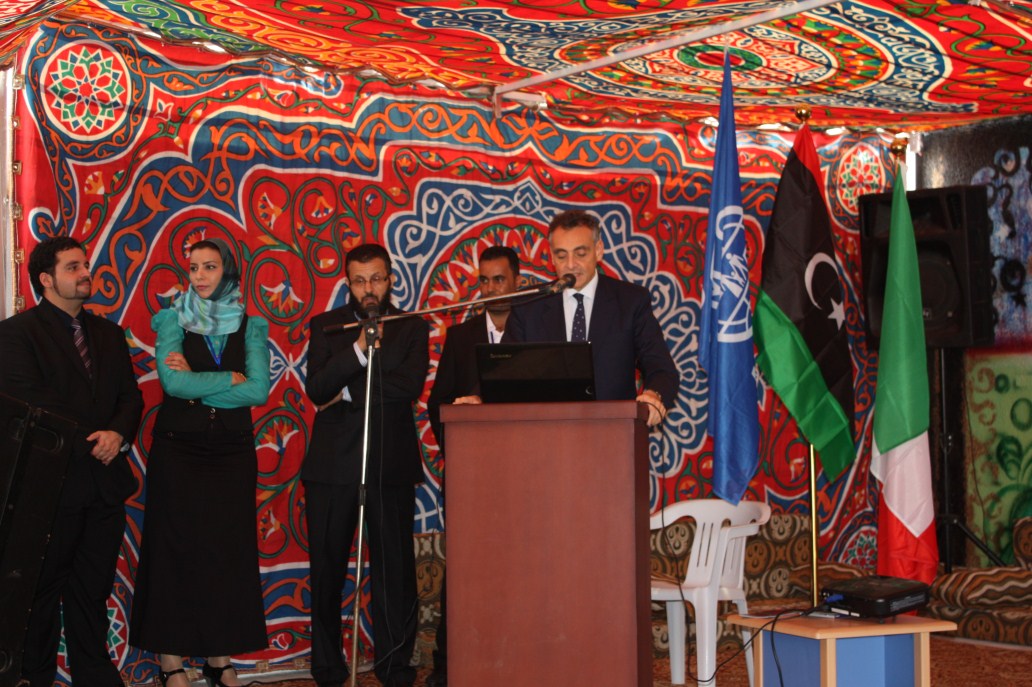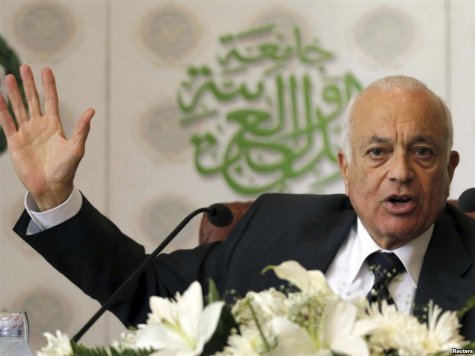Tripoli, 16 May 2105:

An eight-month course enabling healthcare, education and social specialists to better understand the requirements of those suffering from psychological . . .[restrict]and other traumas resulting from the 2011 revolution has just finished at Tripoli University. The first of its kind, “Psychosocial Interventions in War-Torn Societies” was designed and delivered by the International Organization for Migration (IOM) in partnership with the University of Tripoli and has been a key component of the Psychosocial Assistance Programme for Crisis Affected Families in Libya, funded by the Italian Ministry of Foreign Affairs.
Thirty-one students attended, all of them already working in social services, psychology, healthcare or the political arena.
The programme was aimed at increasing general knowledge and awareness of the psychosocial approach in addressing psychological and social impacts of collective violence, as well as intending to equip professionals with relevant concepts, theories and practical skills in working with individuals and groups affected by events during the Libyan revolution.
Both Libyan and international academics and professionals taught on the course. Topics included: psychosocial paradigms in displacement, international standards on mental health and psychosocial support in emergency settings, participatory needs assessment, creative and art based interventions, social reconciliation, and psychosocial dynamics of conflict.
“One of the key approaches in Psychosocial Support is the focus on community empowerment, not only in providing assistance to those people affected but also empowering positive the responses – the healing elements – that emerge from the community,” said Marcio Gagliato, IOM Libya Psychosocial Programme Manager.
Students reported that they were able to apply the knowledge gained from the course in their practical work with people affected. Some of the examples they gave included: changes in lifestyle and in the way of dealing with themselves and with others; reducing tension among displaced populations; improved psychological support to citizens who have suffered as a result of the crisis; new focus on positive elements in psychosocial healing.
With the majority of the students currently employed at the IOM Social and Recreational Centres in Tripoli, Benghazi and Misrata or in government social and health institutions, the IOM says that they will be able to put their knowledge to immediate use.
The course ended with a ceremony on Monday attended by the Dean of the Tripoli University, Almadani Dkheel, the First Secretary of Italian Embassy, Alessandro Mandanici, the IOM Chief of Mission, Othman Belbeisi, representatives of the UN agencies and students with relatives and friends.
At the event, a number of speakers, expressing appreciation for the course, said that they hoped it would be repeated in future. [/restrict]








